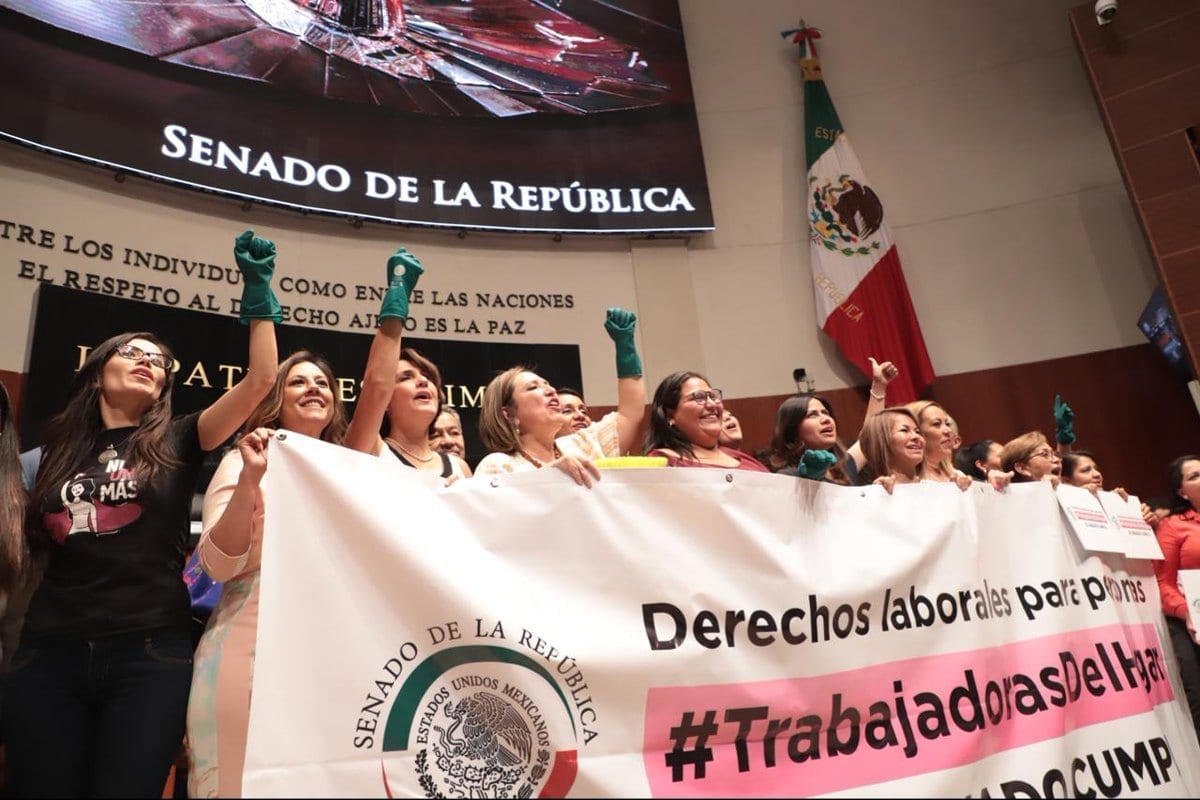In Ukraine, domestic workers formed the country’s first organization for domestic workers, including childcare workers, this week. The organization’s formation is part of a growing global movement to assert the rights of this vast, mostly hidden and primarily female...
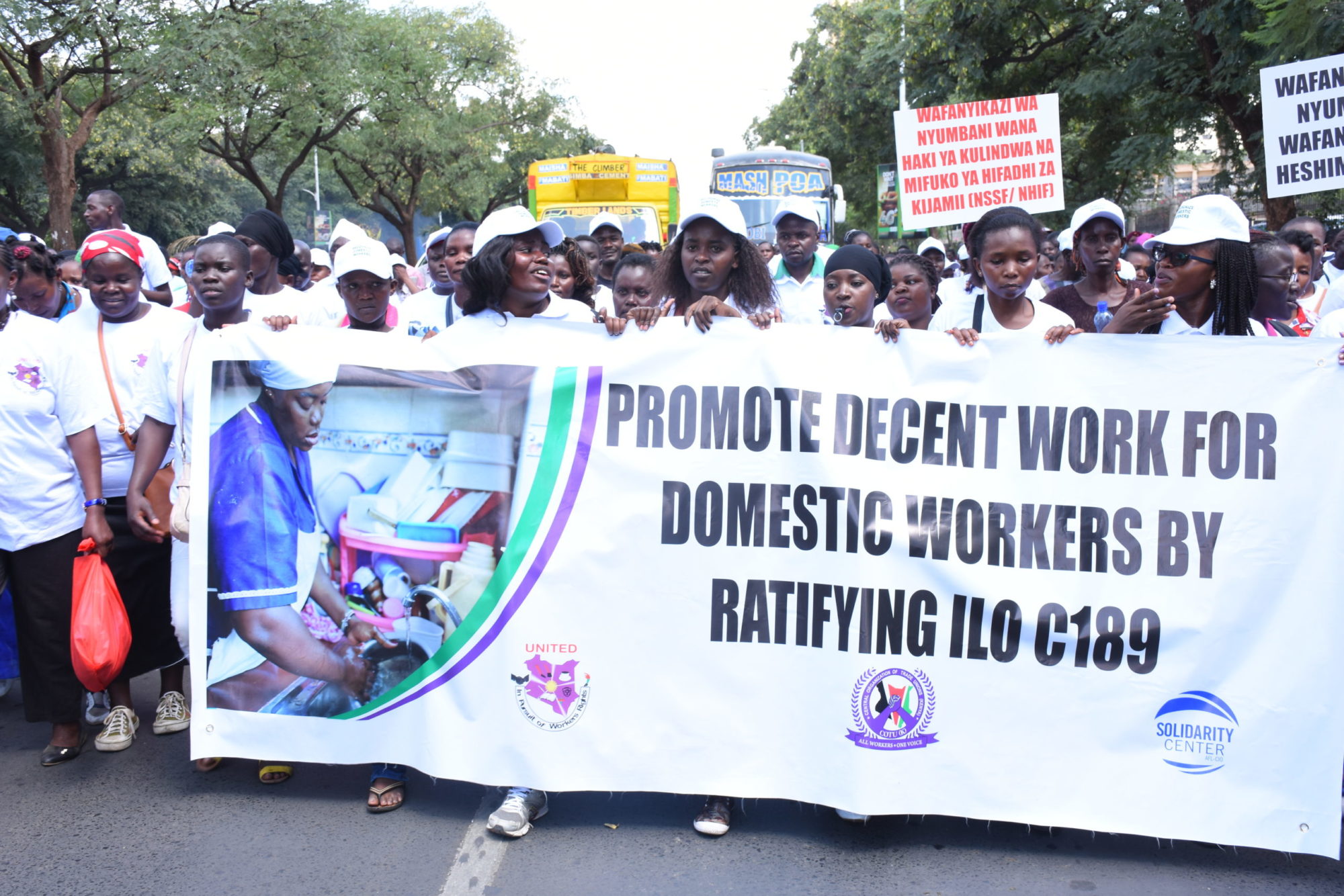
The Solidarity Center joins with unions in Kenya and around the world in championing ratification of the ILO global treaty Convention 189 covering domestic worker rights. Credit: KUDHEIHA
Millions of domestic workers are employed in countries where they are excluded from national labor laws, including limits to working hours, minimum wage and overtime pay. Domestic workers, who are predominantly women and sometimes children, toil invisibly in private homes. Some live on their employer’s premises where, away from the public eye, they often are subject to abuse. Nearly one in five domestic workers are international migrants.
The Solidarity Center supports unions around the world as they assist domestic workers in gaining their rights on the job such as in Honduras and Ukraine, where workers formed the first domestic workers union in their countries with the assistance of Solidarity Center partners.
Together with the International Domestic Workers Federation (IDWF) and the U.S.-based National Domestic Workers Alliance, the Solidarity Center supports leadership, gender equality and rights-based training for domestic workers to strengthen their ability to advocate for improved wages and working conditions.
Many domestic workers migrate for jobs to the Gulf countries and the Middle East, and the Solidarity Center works to advance their rights with union partners in origin and destination countries, such as the Kuwait Trade Union Federation (KTUF), which launched a migrant worker office that assists domestic workers and other migrant workers experiencing wage theft and other forms of exploitation.
The Solidarity Center, which joined with unions and rights organizations in championing passage of the 2011 International Labor Organization’s global treaty (Convention 189) covering domestic worker rights, assists unions in pushing for adoption of the treaty in their countries to ensure domestic work is legally recognized and valued. The Solidarity Center also supports domestic worker unions achieve labor rights in countries such as Mexico, where union partners won the right to written contracts and a ban on employing workers younger than age 15.
Domestic Workers in Mexico Win Landmark Rights Law
Legislation requiring written contracts, paid vacation and annual bonuses for domestic workers passed Mexico’s House and Senate and is expected to be signed into law by President Andrés Manuel López Obrador. The landmark law, which also prohibits employers from hiring...
Kuwait Union Opens Doors to All Migrant Workers
The Kuwait Trade Union Federation (KTUF) this week celebrated the relaunch of a migrant worker office within its headquarters to help address legal cases related to wage theft or other forms of exploitation brought by migrant workers, including domestic workers, in...
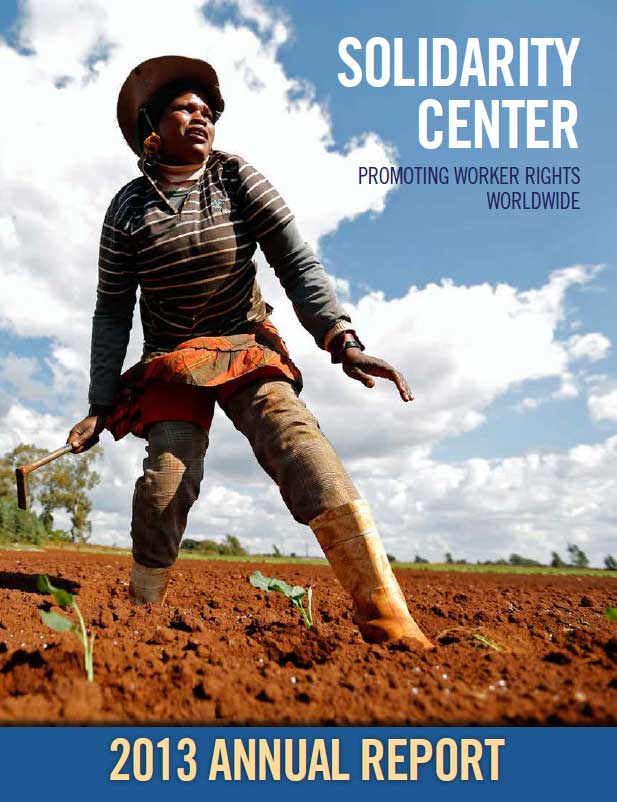
Solidarity Center 2013 Annual Report
Download here.

Africa Trade Unions and Africa’s Future: Strategic Choices in a Changing World (2014)
Download here.
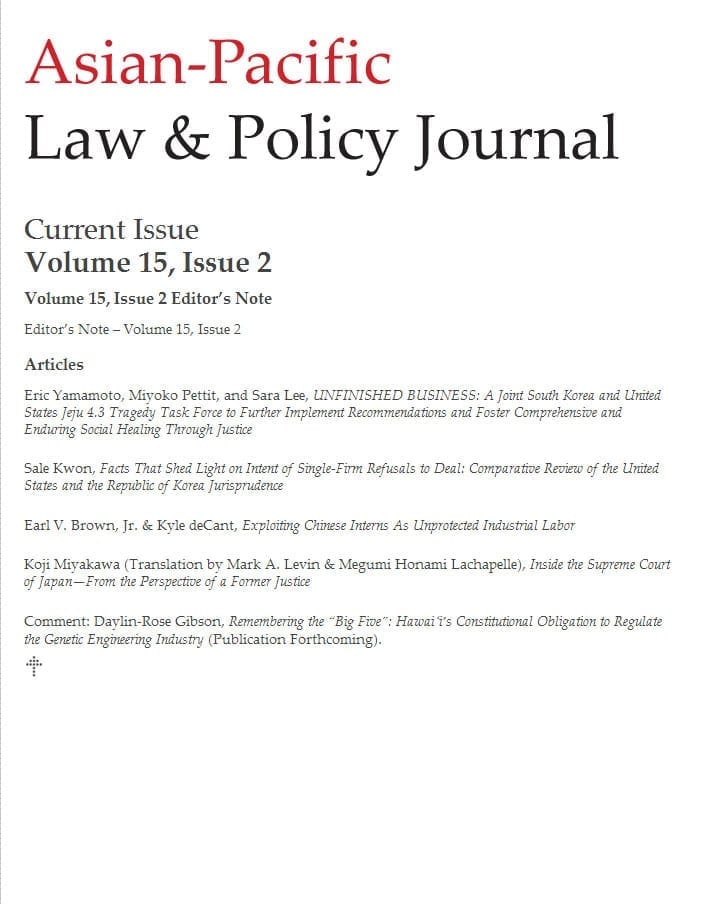
Exploiting Chinese Interns as Unprotected Industrial Labor (June 2014)
Earl V. Brown, Jr. & Kyle A. deCant Solidarity Center Labor and Employment Counsel Earl Brown and co-author Kyle deCant examine the legal issues surrounding the growing numbers of China's industrial interns, the latest class of “cheap” labor to be deployed in...

NIGERIA: Empowering Women, Transforming Society (2014)
A unique grassroots coalition based in the Niger Delta, working with unions and other local non-governmental organizations, is providing a platform for women and young people to effectively engage in the democratic political process, hold local lawmakers accountable...
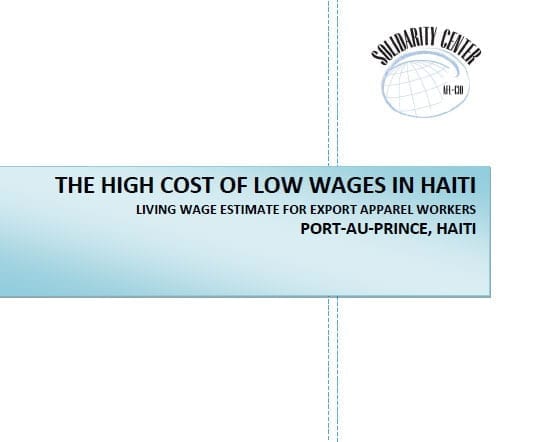
The High Cost of Low Wages in Haiti Living Wage Estimate for Export Apparel Workers (April 2014)
Despite a 45 percent increase in apparel exports since the 2010 earthquake in Haiti, the women and men who sew T-shirts and jeans primarily destined for the U.S. market barely earn enough to pay for their lunch and transportation to work, a new Solidarity Center...

The High Cost of Low Wages in Haiti
Living Wage Estimate for Export Apparel Workers (April 2014)
Despite a 45 percent increase in apparel exports since the 2010 earthquake in Haiti, the women and men who sew T-shirts and jeans primarily destined for the U.S. market barely earn enough to pay for their lunch and transportation to work, a new Solidarity Center...


